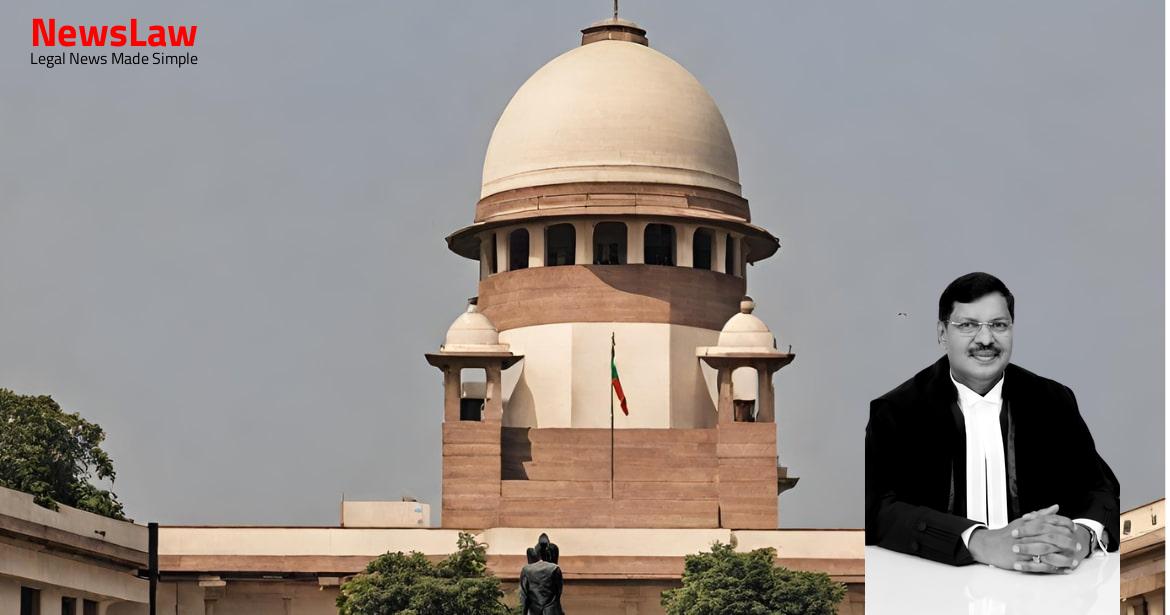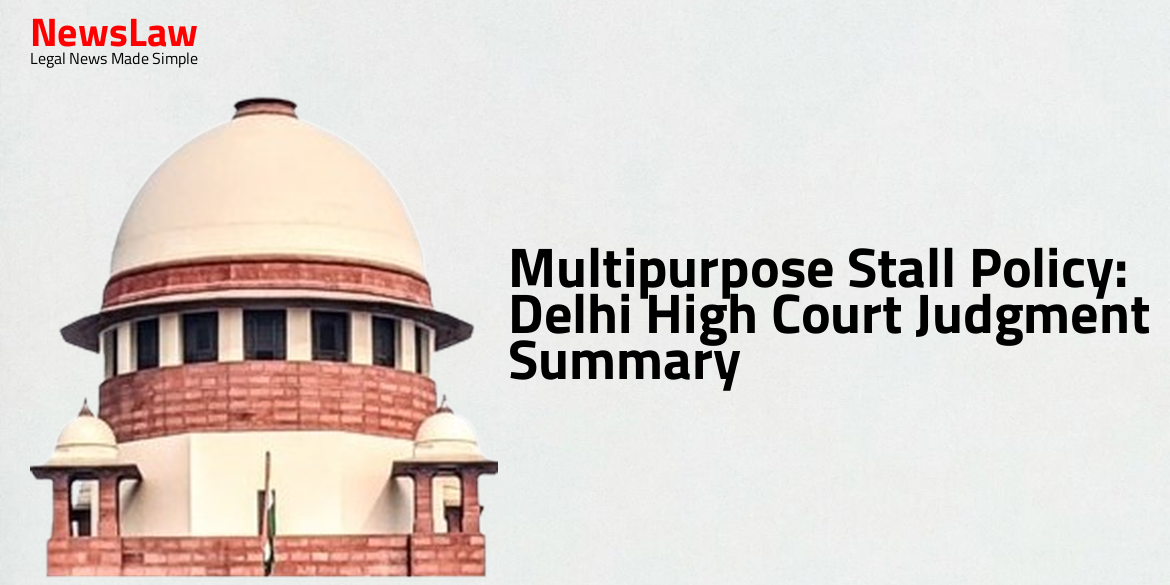Legal cases often hinge on the interpretation of statutes, and a recent judgement by the High Court emphasizes the crucial role of considering the context and purpose of laws. Dive into the exploration of how the court’s legal analysis in this case illuminates the application of statutory rules and their implications on candidate selections. Stay tuned for a deeper insight into the intricacies of interpreting laws for equitable outcomes.
Facts
- The Division Bench affirmed the consideration made by the Single Judge before arriving at its decision.
- The Single Judge considered Rule 4(3)(c)(2) of M.P. State Civil Services Rules, 2015 and concluded that if a candidate is selected in the main list, they will not be considered for remaining post preferences.
- The Division Bench upheld the order passed by the Single Judge in W.P. No.20855 of 2017.
- The Madhya Pradesh Public Service Commission is challenging the High Court’s order in W.A. No.474 of 2019, which was dismissed by the Division Bench.
- Appellant issued advertisement No.2 dated 17.03.2016 for State Service Examination 2016 for various posts in different departments.
- Specific Physical Measurement required for posts of Deputy Superintendent of Police, Assistant Jail Superintendent, and Deputy Transport Inspector.
- Respondent No.1 applied and showed preference for CMO but did not meet the physical measurement criteria for Deputy Superintendent of Police.
- Respondent No.1 included in main list for Deputy Superintendent of Police as per marks obtained.
- Respondent No.1 secured 892 marks out of 1575 marks under SC category.
- Single Judge’s decision to consider respondent No.1 for CMO or other posts based on preference upheld.
Also Read: Supreme Court Upholds Rejection of Plaint Under Order VII Rule 11 of CPC: A Critical Analysis
Arguments
- The Rule under consideration cannot be viewed narrowly.
- Reference is made to a case in Gujarat High Court but the context differs as the posts were vacant.
- Rules mention that if a candidate is selected based on their preferred post, they won’t be considered for remaining posts.
- The physical requirements for specific posts are clearly stated in the advertisement.
- Applicant indicated Deputy Superintendent of Police as second preference, which had specific physical requirements.
- Applicant declared understanding and willingness to abide by all eligibility criteria.
- The appellant argues that physical criteria cannot be neglected if not met at the time of medical examination.
- The preference exercised by the applicant signifies satisfaction of physical requirements.
- Appellant included applicant in the main list based on marks obtained and preference, making them ineligible for other posts.
- Remaining candidates would be considered for their preferred posts based on eligibility and marks.
- The learned counsel for the respondent justified the High Court’s order by explaining that the respondent No.1 could not be appointed to the higher post due to not obtaining the benchmark for his choice.
- The learned Single Judge determined that the Rule should not apply in this case as the respondent was considered for the next preferred post.
- Precedents were cited to support the interpretation of the Rule in a beneficial manner rather than a literal sense.
Also Read: Validity of Debt and Enforcement of Section 138 NI Act
Analysis
- The Rule in operation requires candidates to be selected based on their preference in the merit list.
- Candidates in the waiting list were considered for vacancies in higher posts if selected candidates did not report.
- Candidates selected for higher posts based on preference will not be considered for remaining posts in their preference sheet.
- The case in question involves a candidate who gave preference to Deputy District Collector, Deputy Superintendent of Police, and other posts in that order.
- The candidate must meet the additional eligibility criteria specified in the advertisement.
- The candidate’s declaration of eligibility and preference plays a crucial role in the selection process.
- The merit list is based on a common examination for all advertised posts.
- The candidate’s declaration of physical eligibility for a certain post influences their selection.
- If found ineligible later due to false information, the candidate’s selection can be canceled.
- Once included in the main list based on merit, the candidate’s right for selection to other posts is exhausted.
- The Rule emphasizes being selected in the main list, not just appointed to a post.
- The candidate must take personal responsibility for the accuracy of information provided in the application.
- Legal action can be taken against candidates providing false information.
- Candidates must comply with all eligibility criteria specified for the posts they apply to.
- Interpretation of statutes requires consideration of context, purpose, and object of the statute
- Literal interpretation of provisions is not always the only interpretation
- Cases such as Union of India vs. Major General Madan Lal Yadav, R.L. Arora vs. State of Uttar Pradesh, and Surjit vs. Mahanagar Telephone Nigam Limited highlight the importance of context and purpose in interpreting statutes
- The candidate applied without any objection and provided a declaration about the accuracy of the details given.
- The Rule in question is not being contested.
- The candidate cannot later seek to change the situation to the disadvantage of others.
- The Rule in question has a specified process, as outlined in the application advertisement.
Also Read: Enlargement on Bail in Illegal Mining Case
Decision
- The Writ Petition in W.P. No.20855/2017 before the High Court of Madhya Pradesh Bench at Indore has been dismissed.
- The appeal related to the above Writ Petition has been allowed with no order as to costs.
- The order dated 03.01.2019 passed in W.P. No.20855/2017 and the order dated 08.11.2019 passed in W.A. No.474/2019 have been set aside.
- Any pending application shall stand disposed of.
Case Title: MADHYA PRADESH PUBLIC SERVICE COMMISSION Vs. MANISH BAKAWALE (2021 INSC 914)
Case Number: C.A. No.-007721-007721 / 2021



